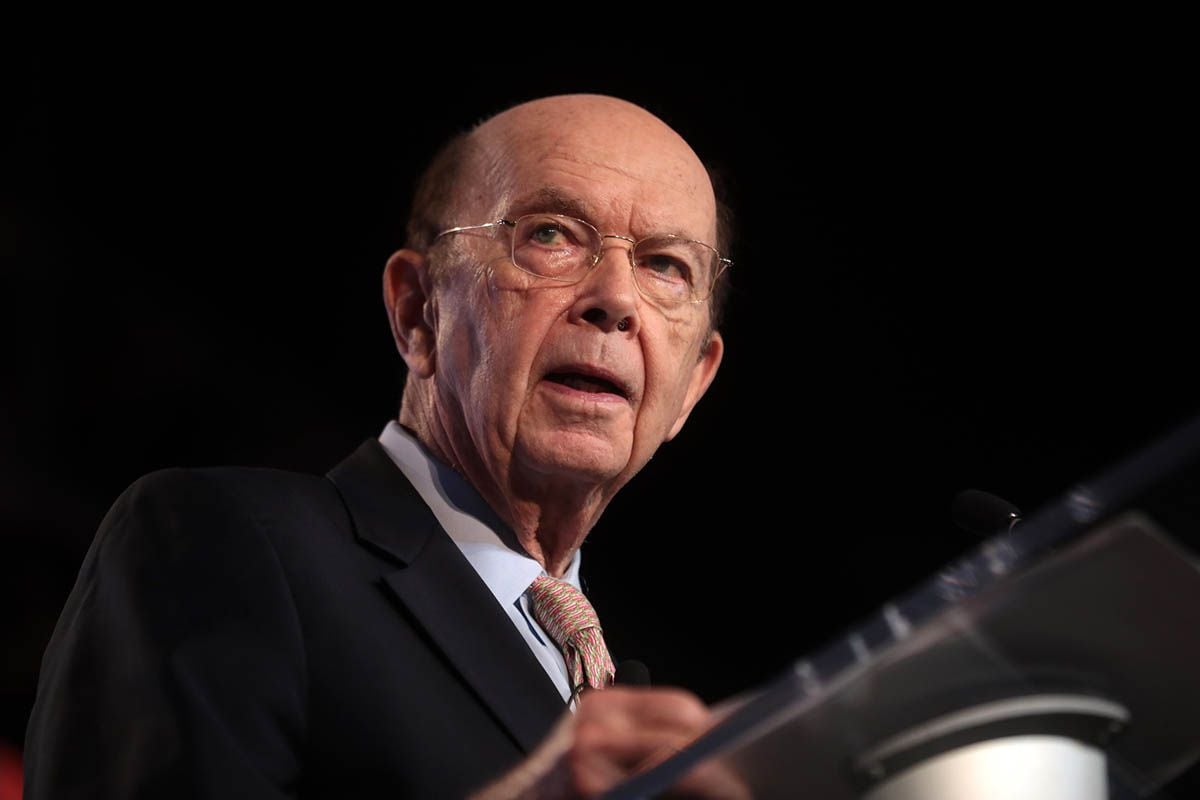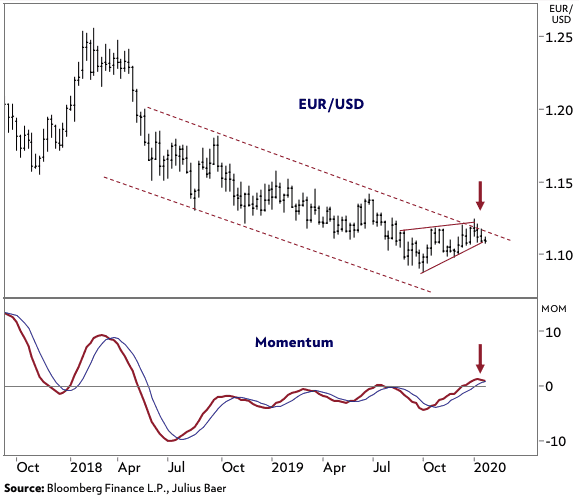Euro-Dollar 'Shorts' Are a Bet that Can Keep On Delivering This Year
- Julius Baer staying short EUR/USD
- Fall to 1.0340 said to be on the cards
- Fresh U.S. tariff threat underpins Euro weakness

Above: File image of Wilbur Ross. © Gage Skidmore. Image accessed from Flickr. Reproduced under Creative Commons licensing.
Europe's single currency remains in a long-term decline against the Dollar which is not yet over, according to technical strategists at Swiss bank Julius Baer.
Analysts have been positioned for Euro losses against the Dollar since 2018, and have profited from a broad decline during this time.
"On a total return basis, the pair has declined by 14%," says Julius Baer's Mensur Pocinci.
"As seen on the chart, there have been several rebound attempts but all have failed and resulted in the resumption of the bigger picture downtrend," says Pocinci.
Poncinci says the EUR/USD appears to have failed to break out of its longer term downtrend when the Euro strengthened and pushed the pair up to a high at 1.1239 on December 31.
"Likely, we have witnessed another failed attempt to rebound and the peak in medium-term momentum opens up the way for a decline below the September lows," says Pocinci.
Julius Bear's technical strategists are geared for a decline towards 1.05, and "even the lows of 2017 at 1.0340 remains on the cards," says Pocinci.
Euro to Remain Under Pressure as Long as Growth Disappoints, Tariff Threats Remain
Looking at the fundamental dynamics driving the decline in the Euro-Dollar rate, the outperformance of the U.S. economy over that of the Eurozone over recent years appears to be a critical driving factor.
2019 was a particularly poor year for the Eurozone economy, with Germany - its industrial engine - almost recording a recession.
It is little wonder then the European Central Bank's President Christine Lagarde on Thursday maintained a cautious tone on the Eurozone's outlook, implying interest rate and quantitative easing easing will remain in place for some time. Lagarde told the press at the Bank's January policy event she wants to see a clear pick up in Eurozone growth before she considers easing back on ECB support, and until then it is hard to see the Euro gain upside traction.
"As inflation does not record a substantial uptrend there is no pressure on the ECB to signal a normalisation of its monetary policy, and as a result there is no reason to bank on a significant euro appreciation trend," says Thu Lan Nguyen, FX & EM Analyst with Commerzbank in Frankfurt.
Nguyen notes that part of the Euro's underperformance of the past 24 hours has a great deal to with the prospect of a U.S.-EU trade spat being a feature of 2020.
"President Trump and his Commerce Secretary Wilbur Ross yesterday kindly reminded everyone with their threat of car tariffs, a potential trade war with the US. Their comments are likely to have contributed to the risk off mood on the market and why safe currency havens like yen and franc, but also the US dollar, were able to appreciate against the Euro," says Nguyen.
Trump said on Thursday U.S. he could impose levies as high as 25% on Europe's cars and automobile parts.
Ross told CNBC that Trump decided that as long as negotiations are beginning to bear fruit he will continue to negotiate: "He has not ruled out putting tariffs if the negotiations fail."
"We are eager to make a peaceful resolution with the EU," Commerce Secretary Wilbur Ross said at a press conference. "But the president, as you heard yesterday, also made it very clear that if that doesn’t work, he would go a different direction," said Ross.
The impact on the Euro of a fully fledged trade war between the U.S. and EU will likely be significant, particularly owing to the Eurozone's hefty trade surplus which is the result of the bloc exporting more goods than it imports.
The German economy is particularly exposed to trade, with economists agreeing that the sharp slowdown in the economy in 2019 was largely down to the decline in global trade stemming from the U.S.-China trade spat.
An entrenched U.S.-EU trade war could potentially have more of a direct impact on the Eurozone economy, which could in turn prompt further aggressive action on interest rates and quantitative easing at the ECB.
The net result would be a notably lower Euro.





